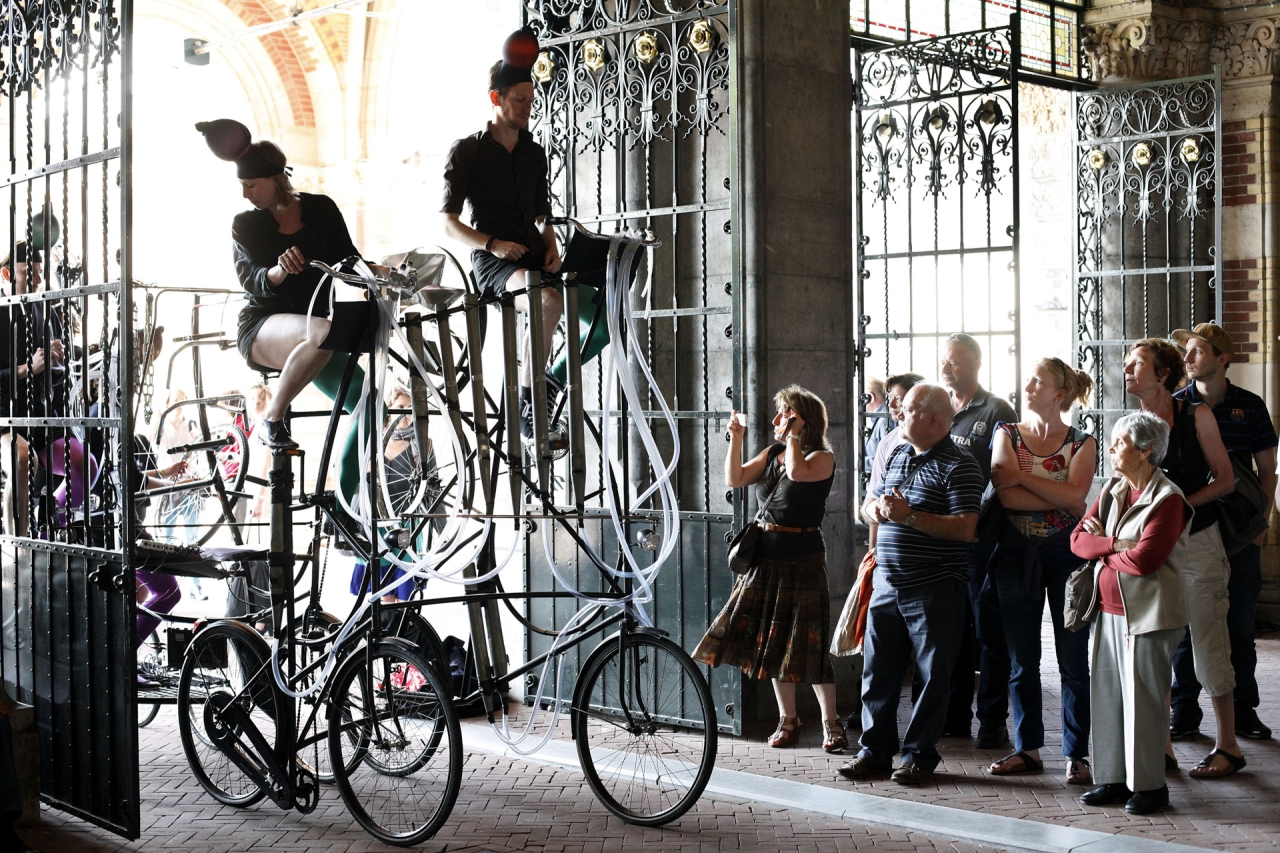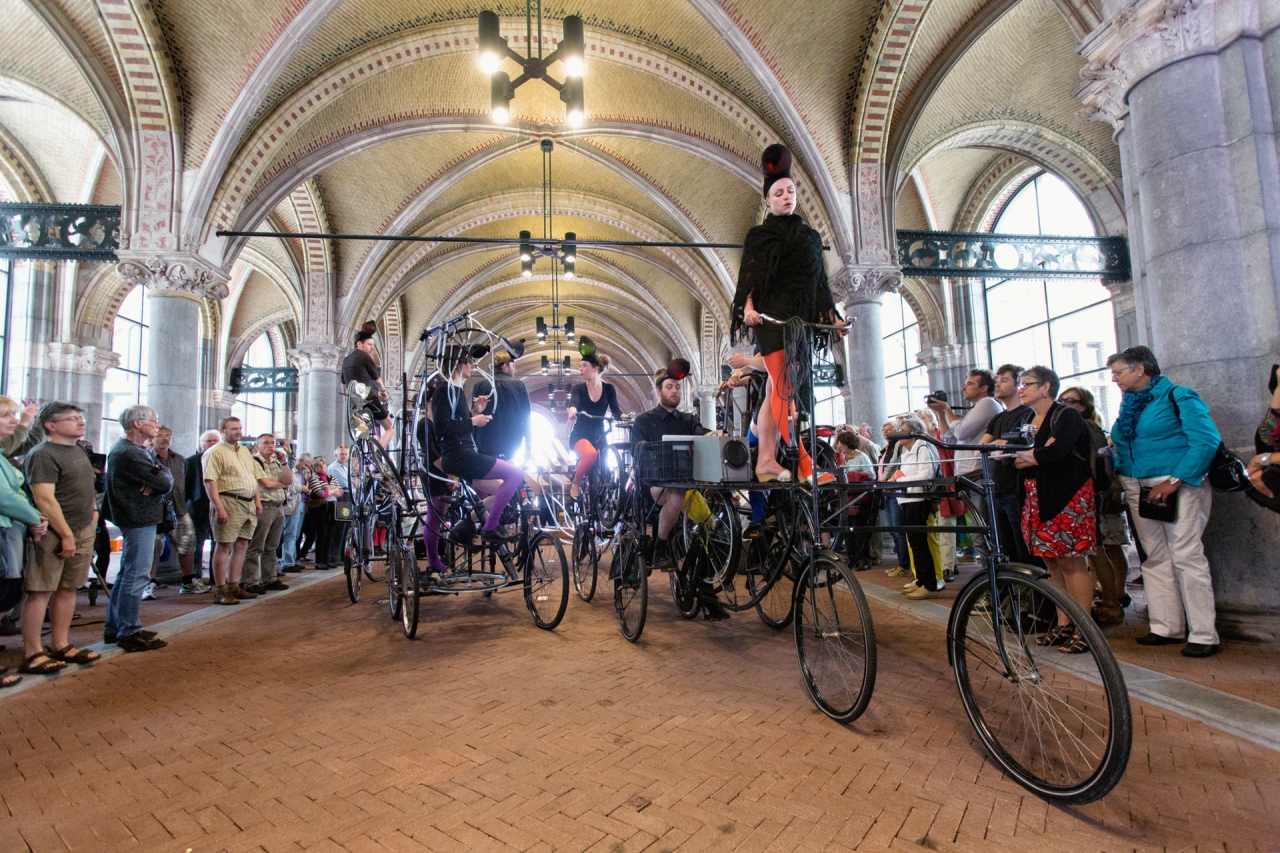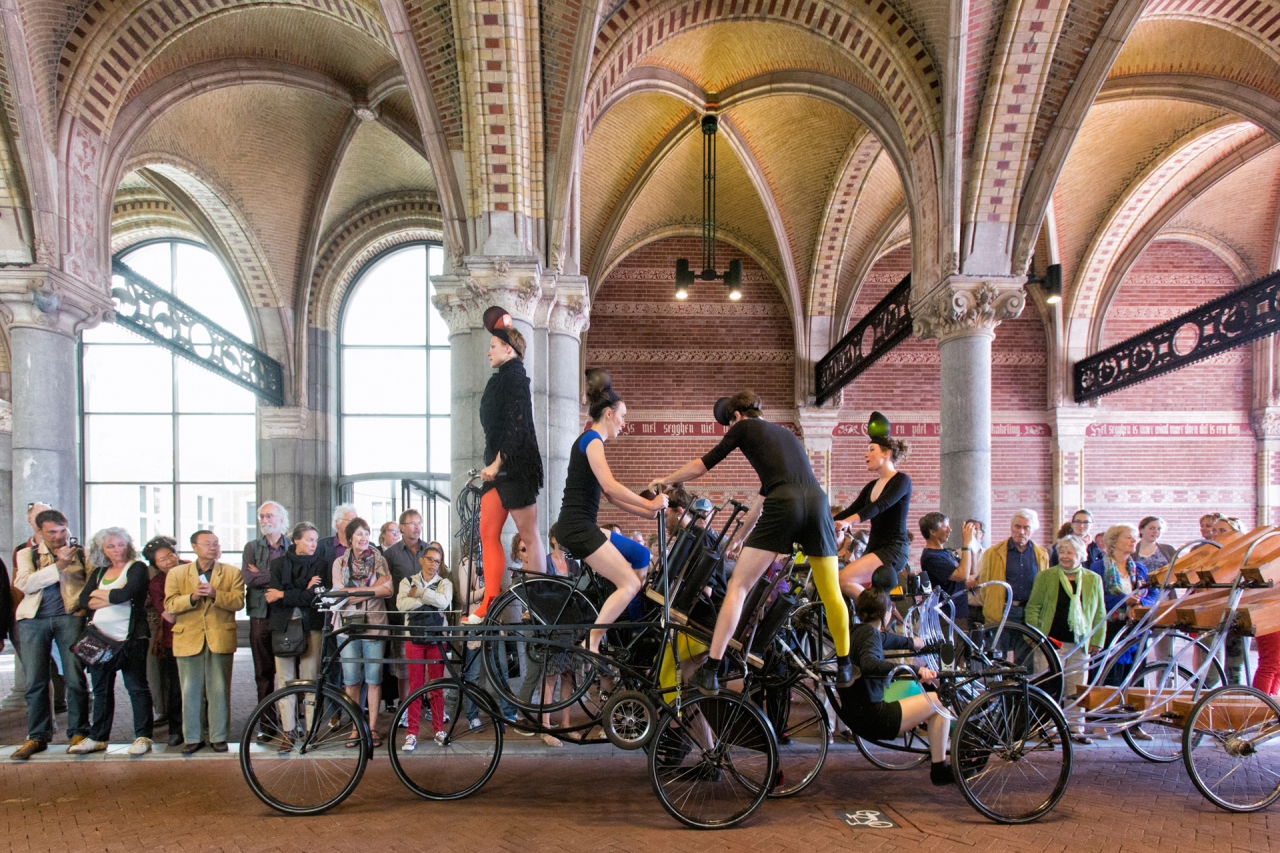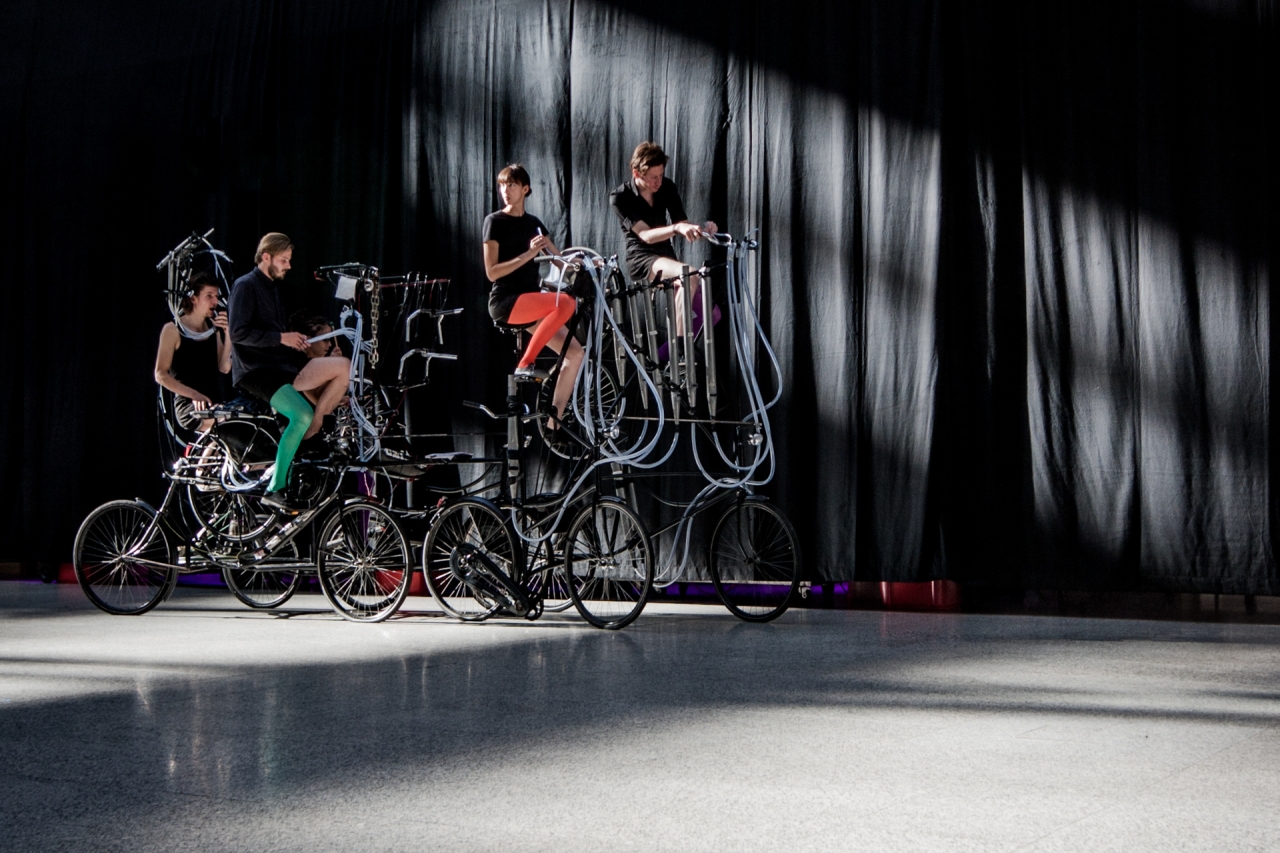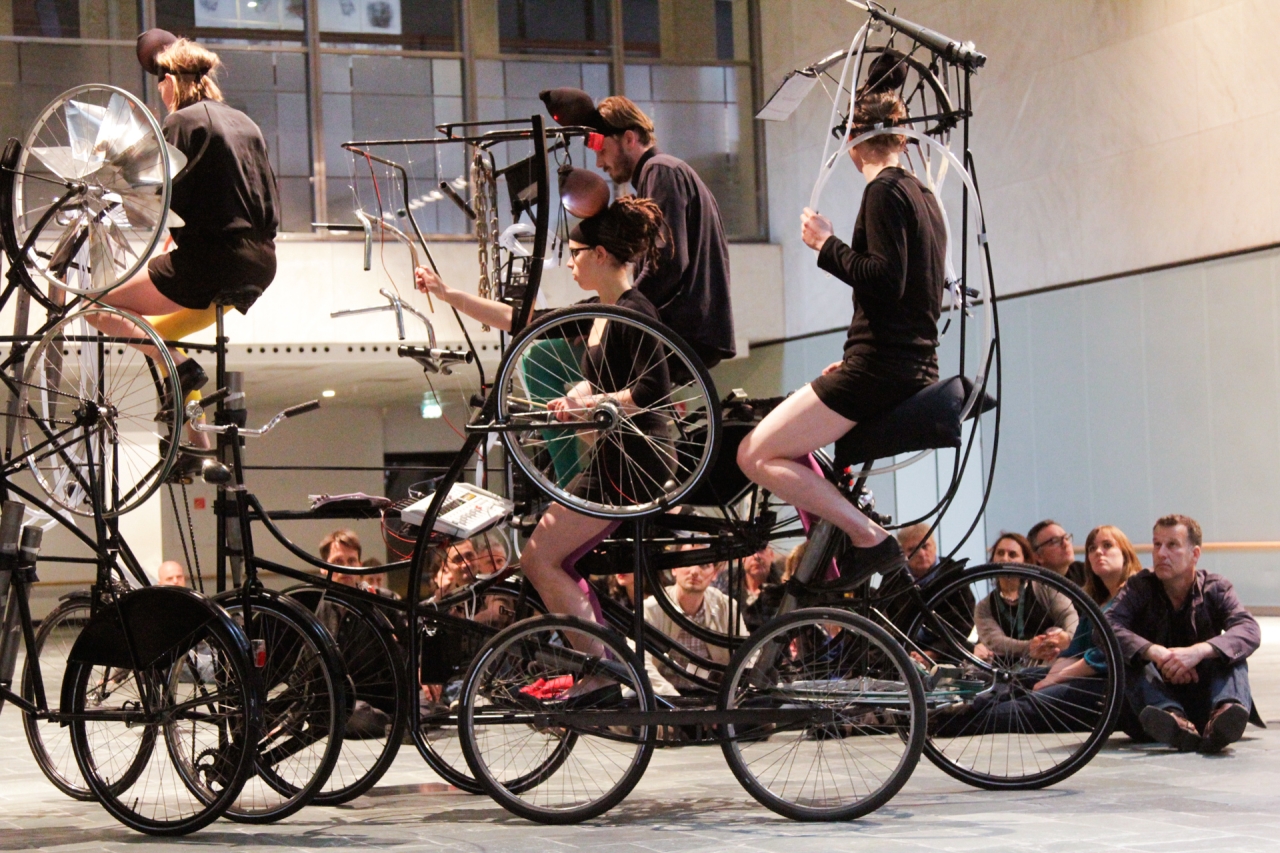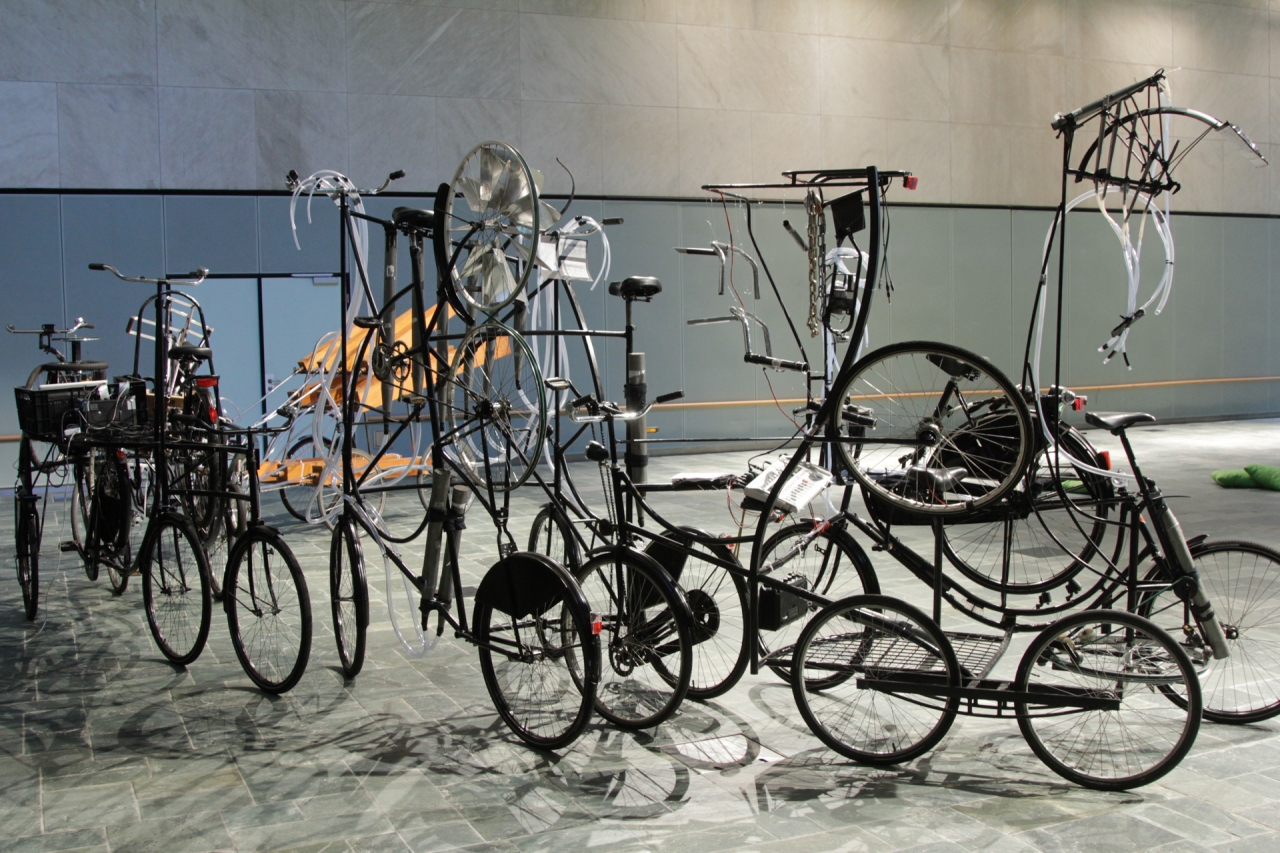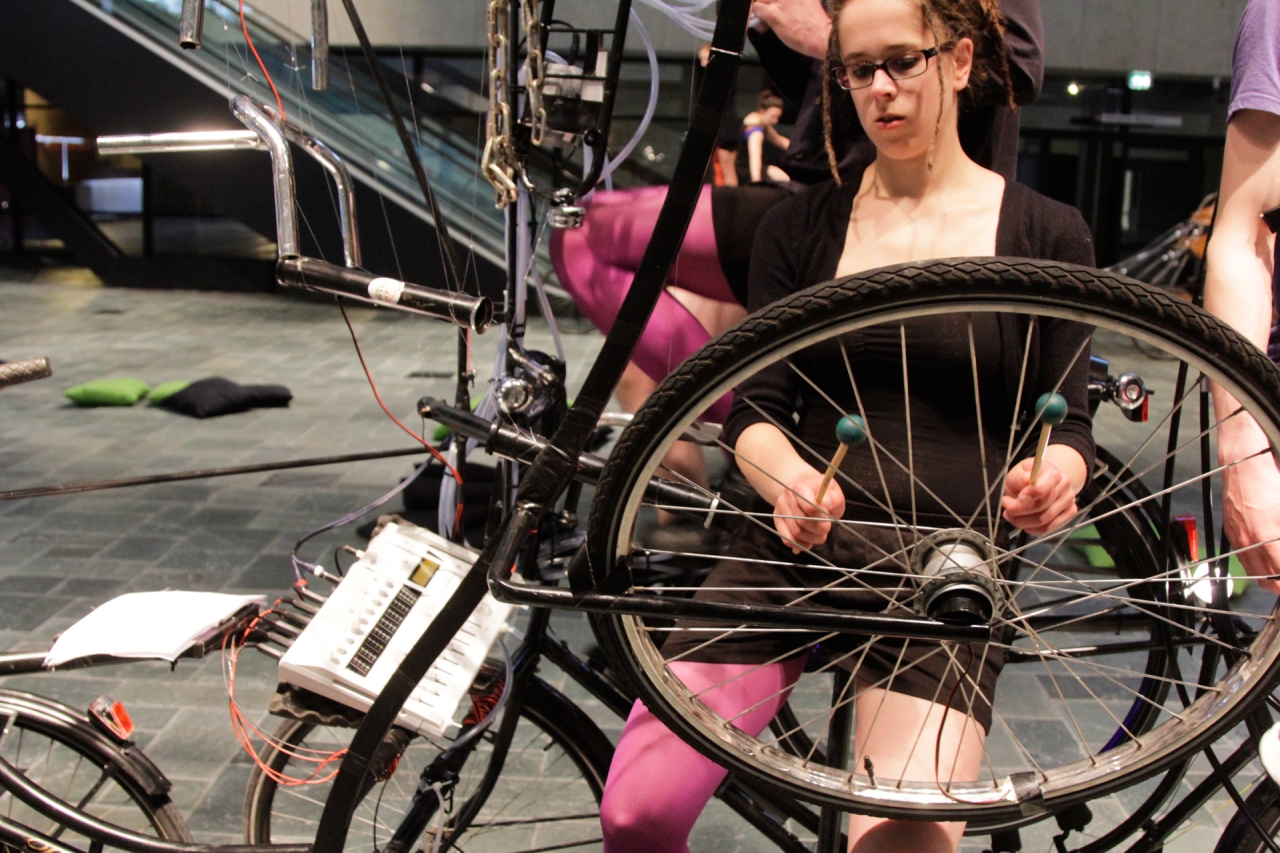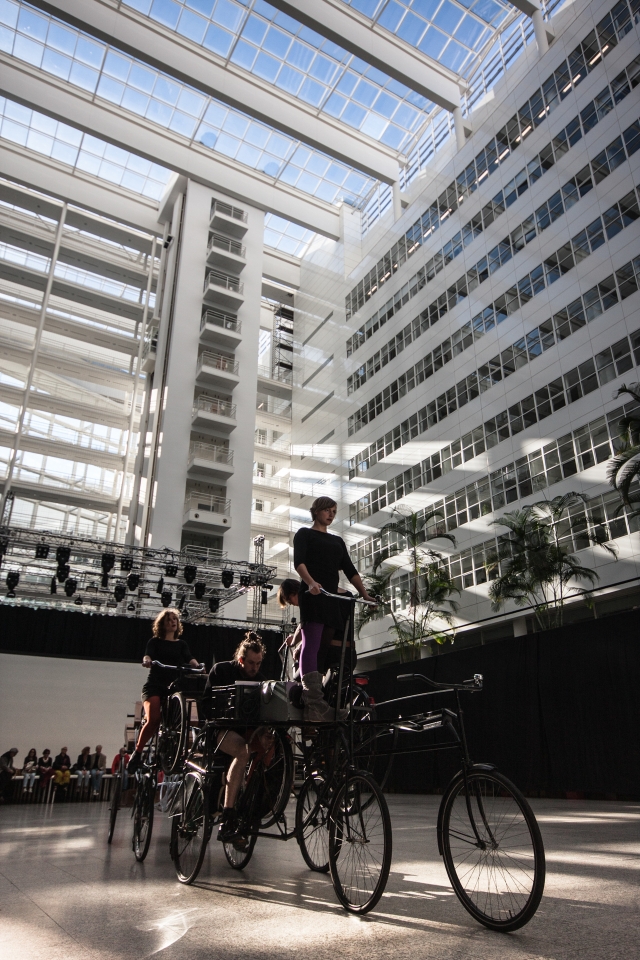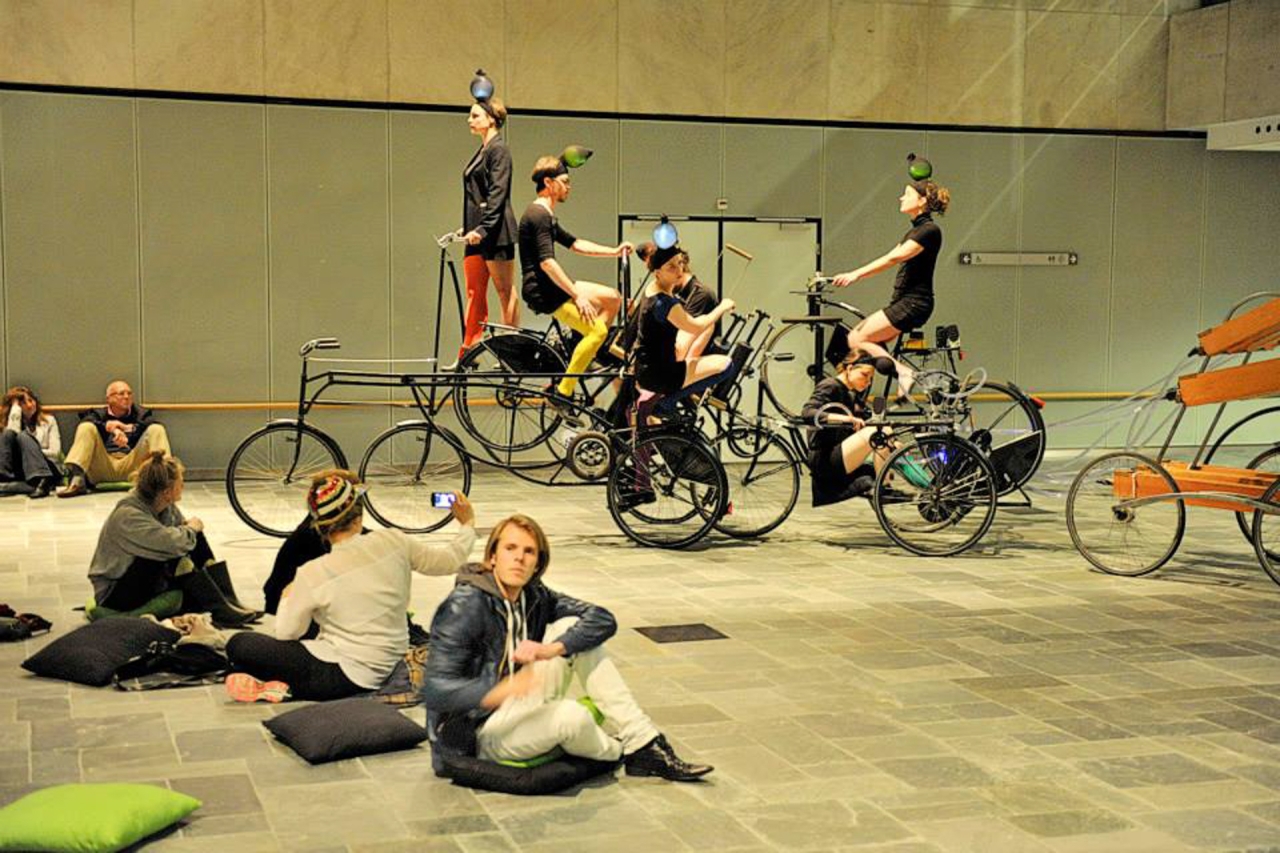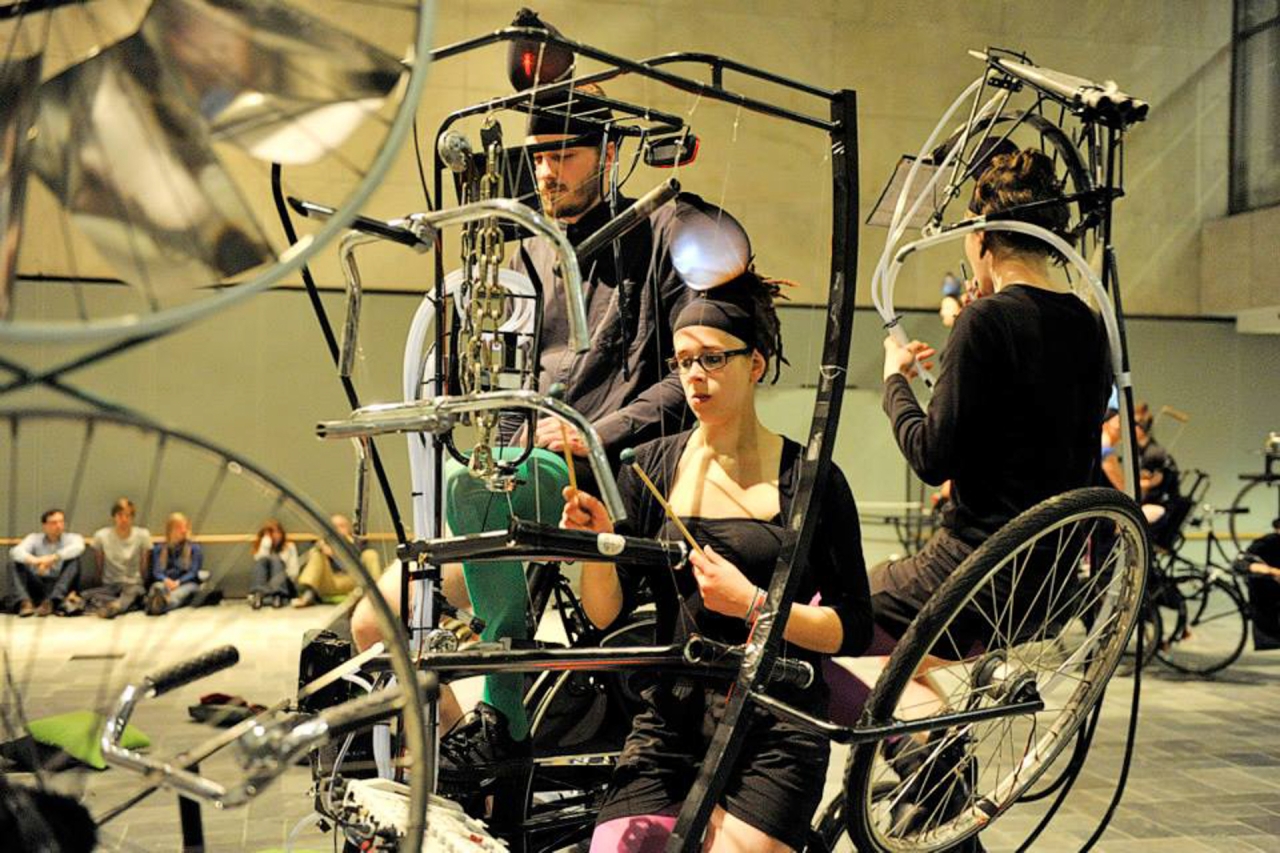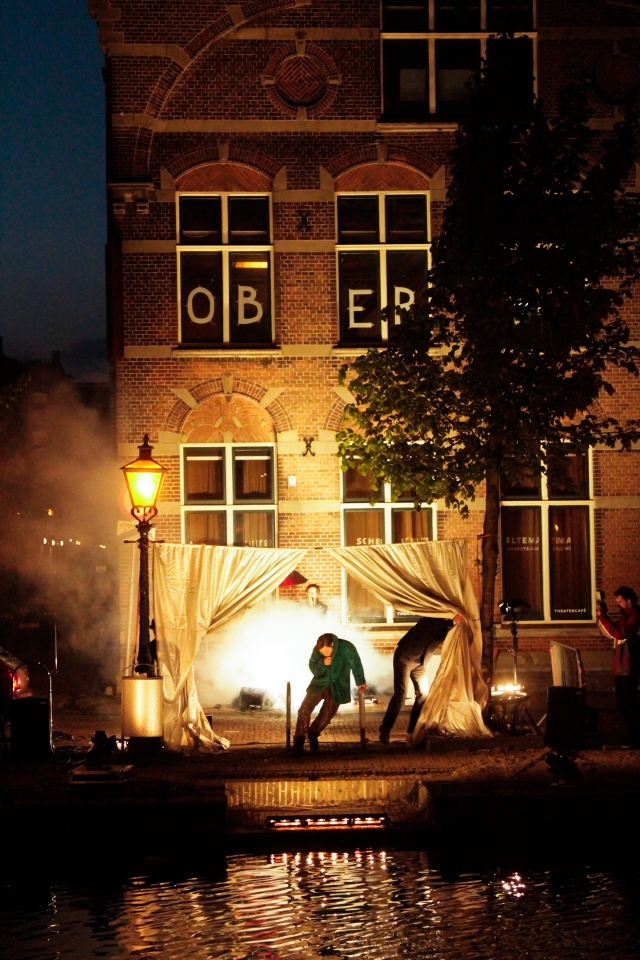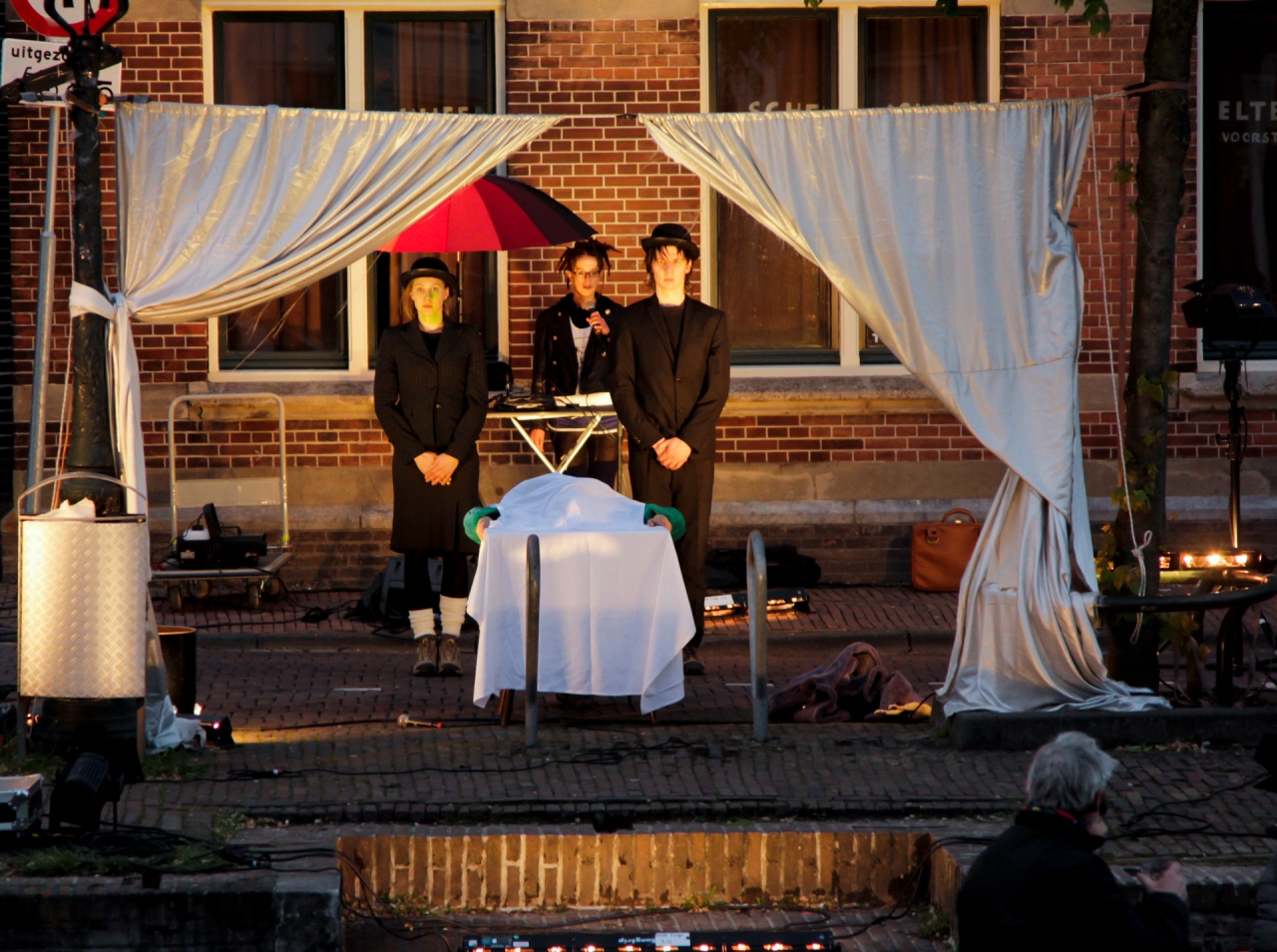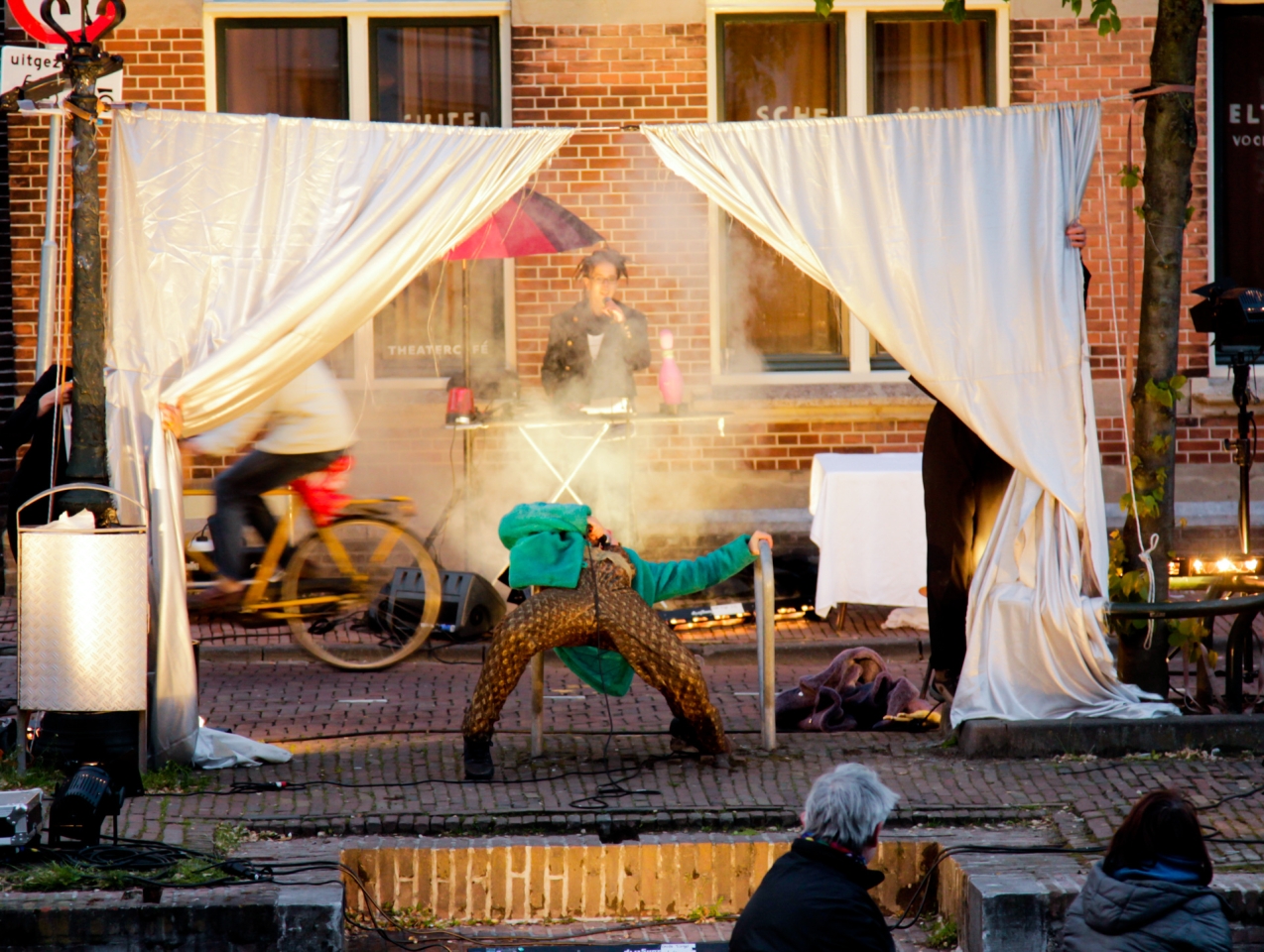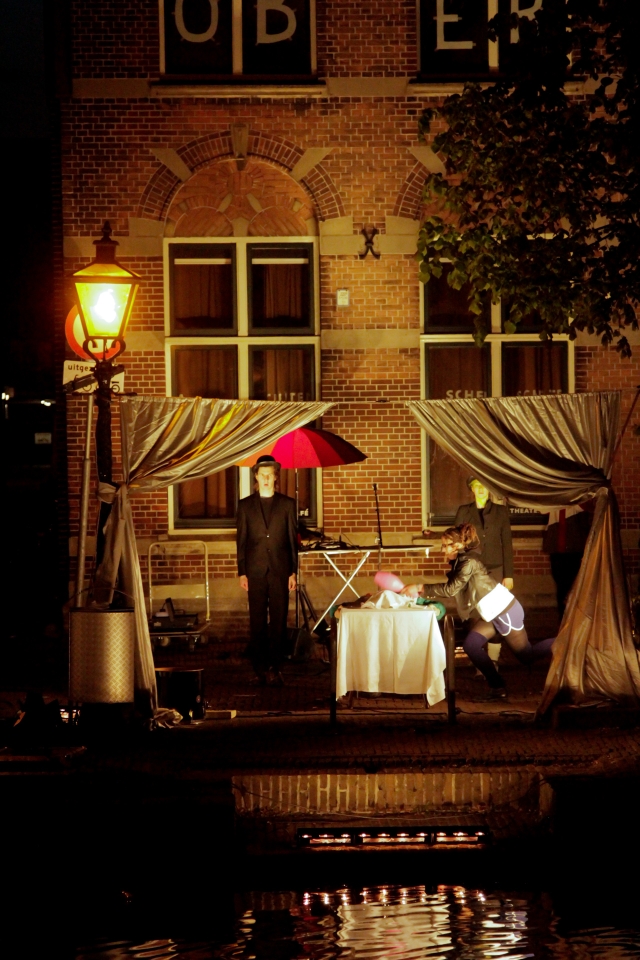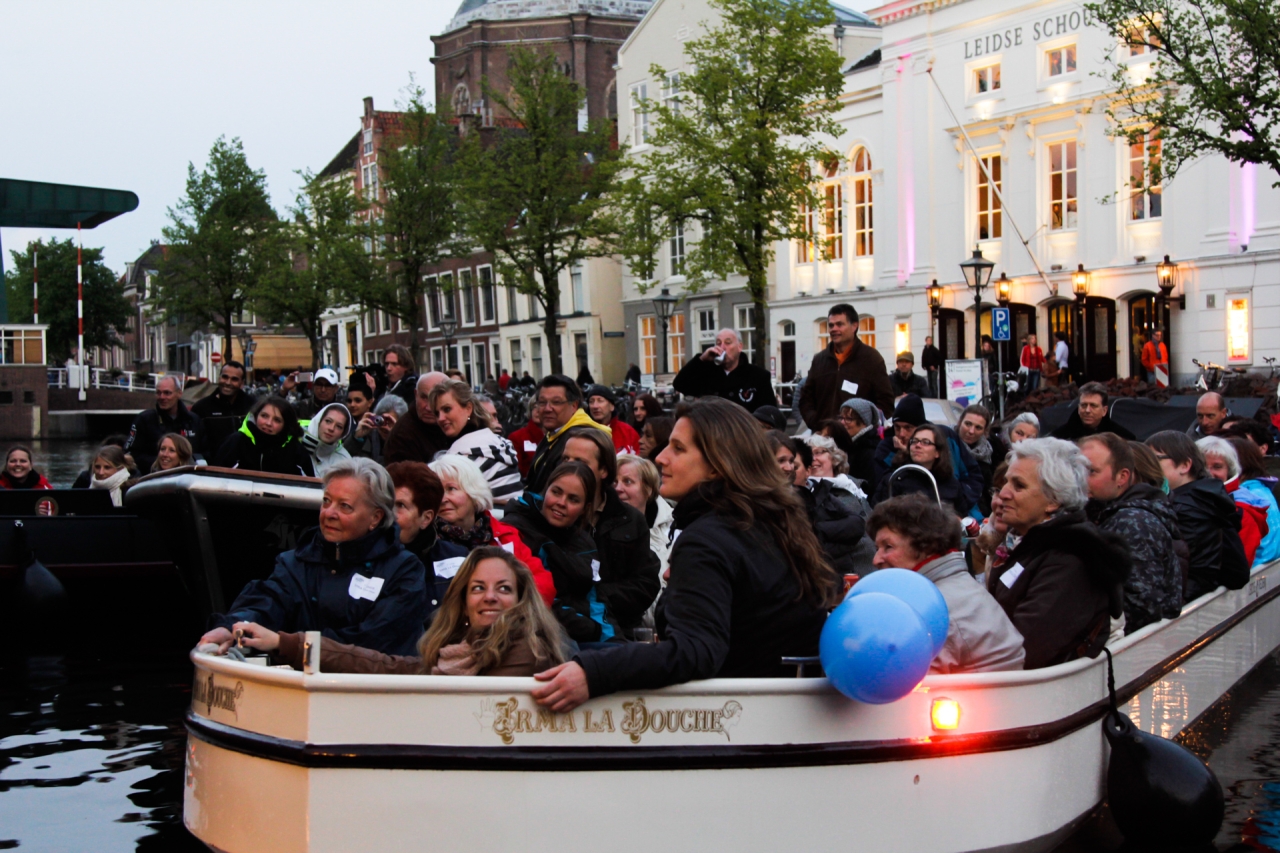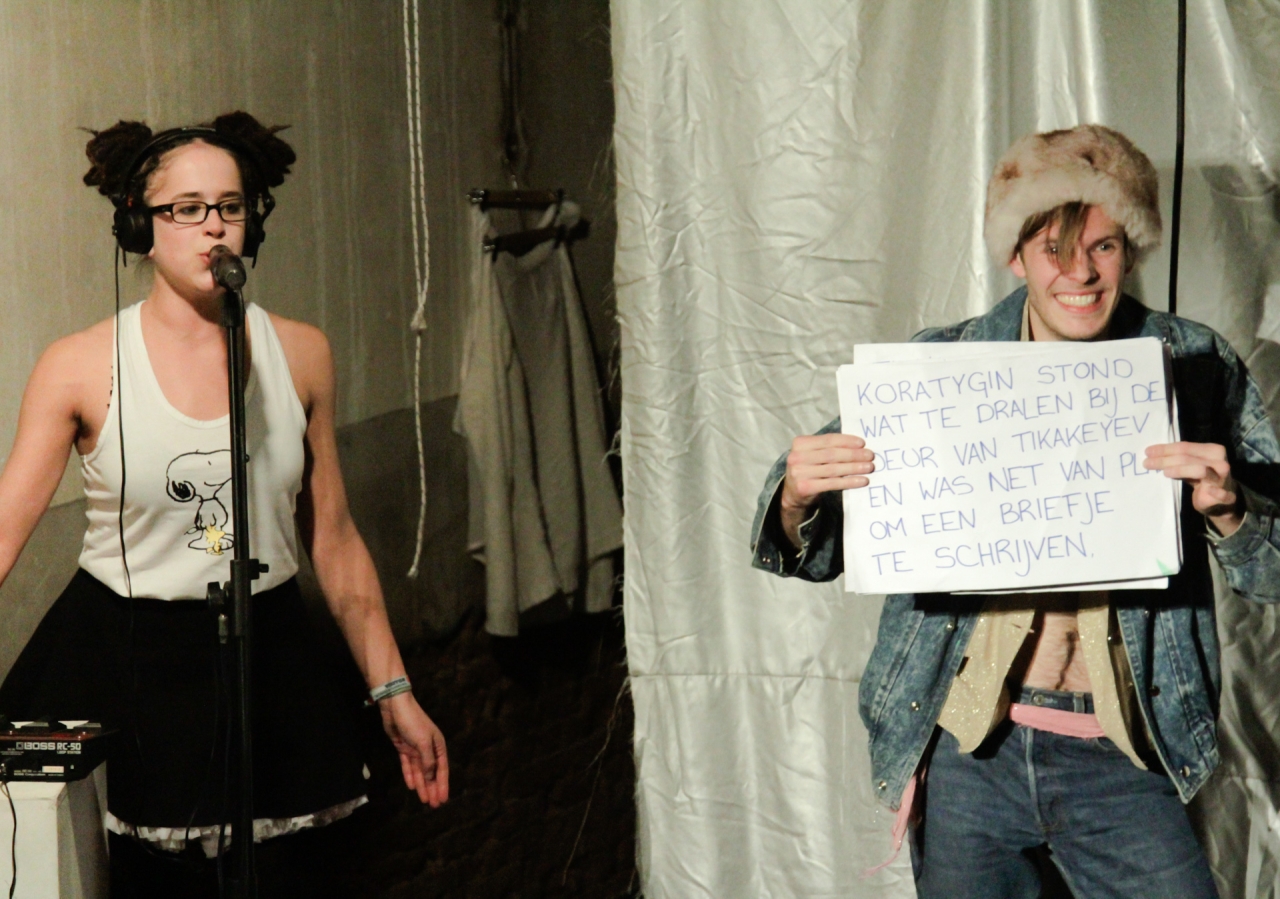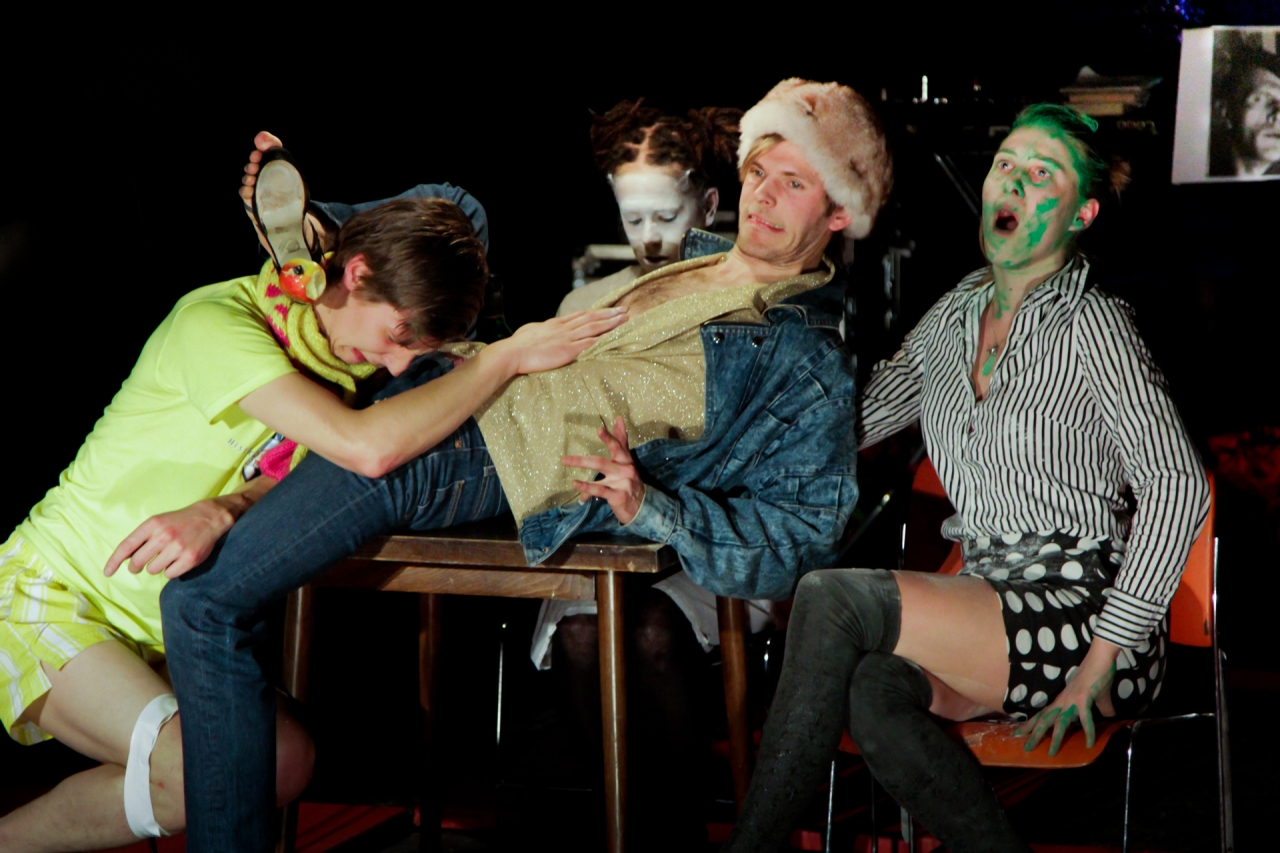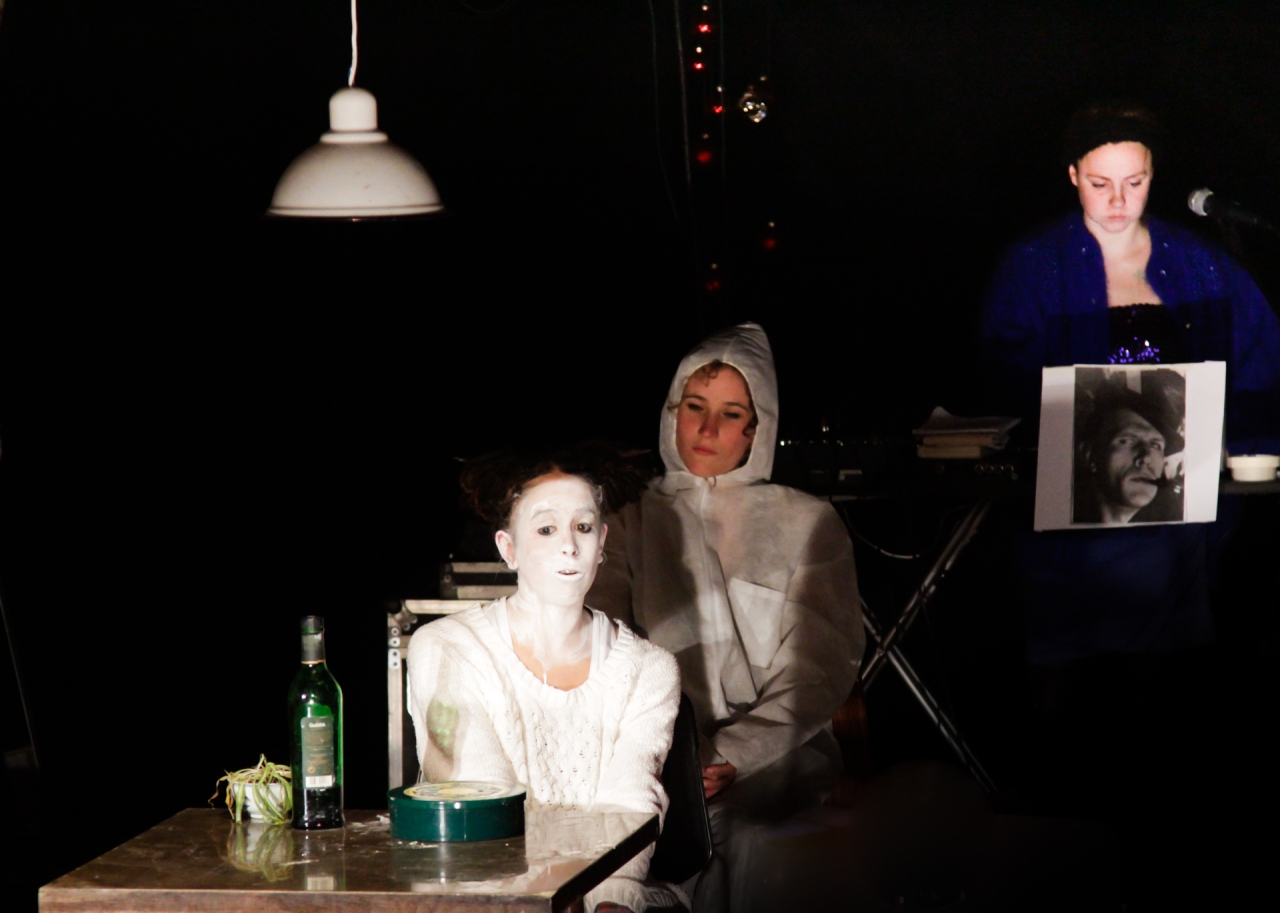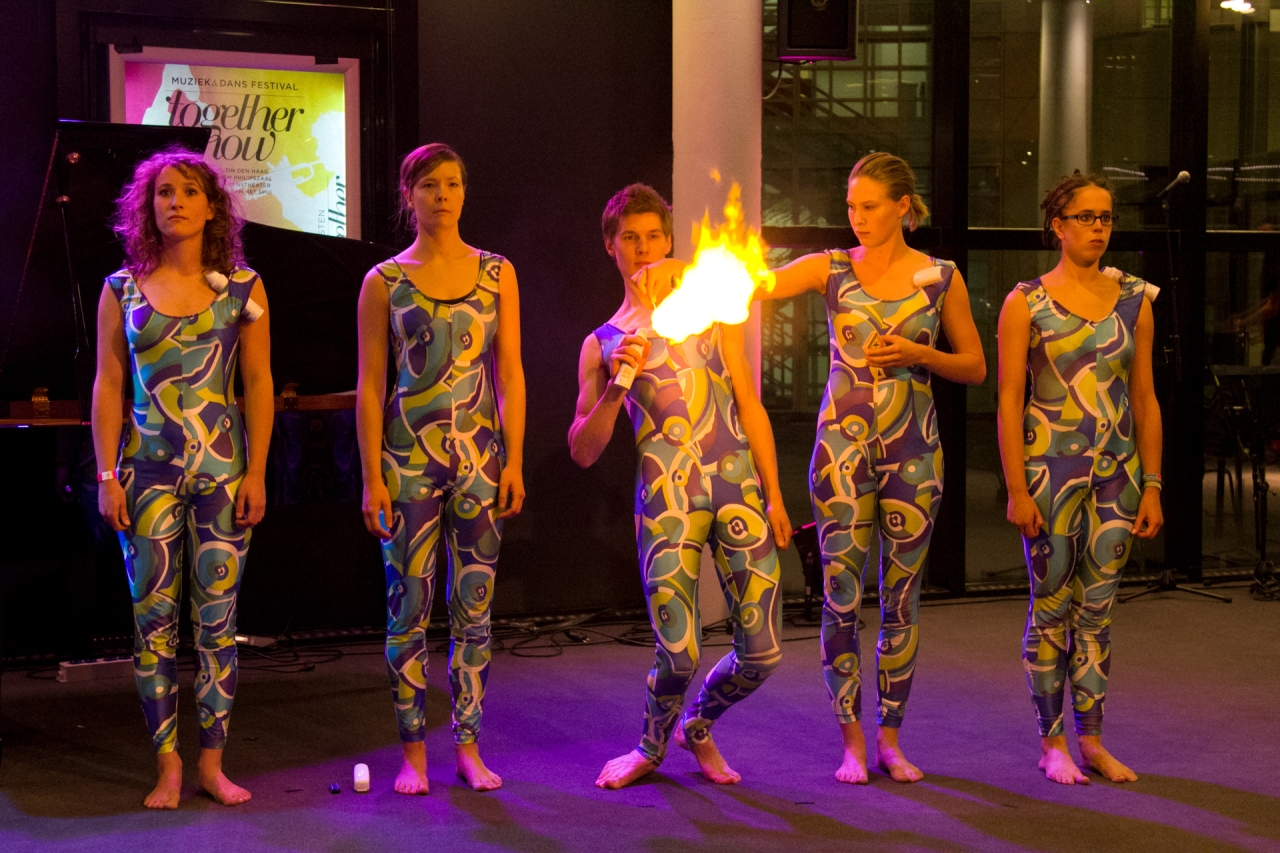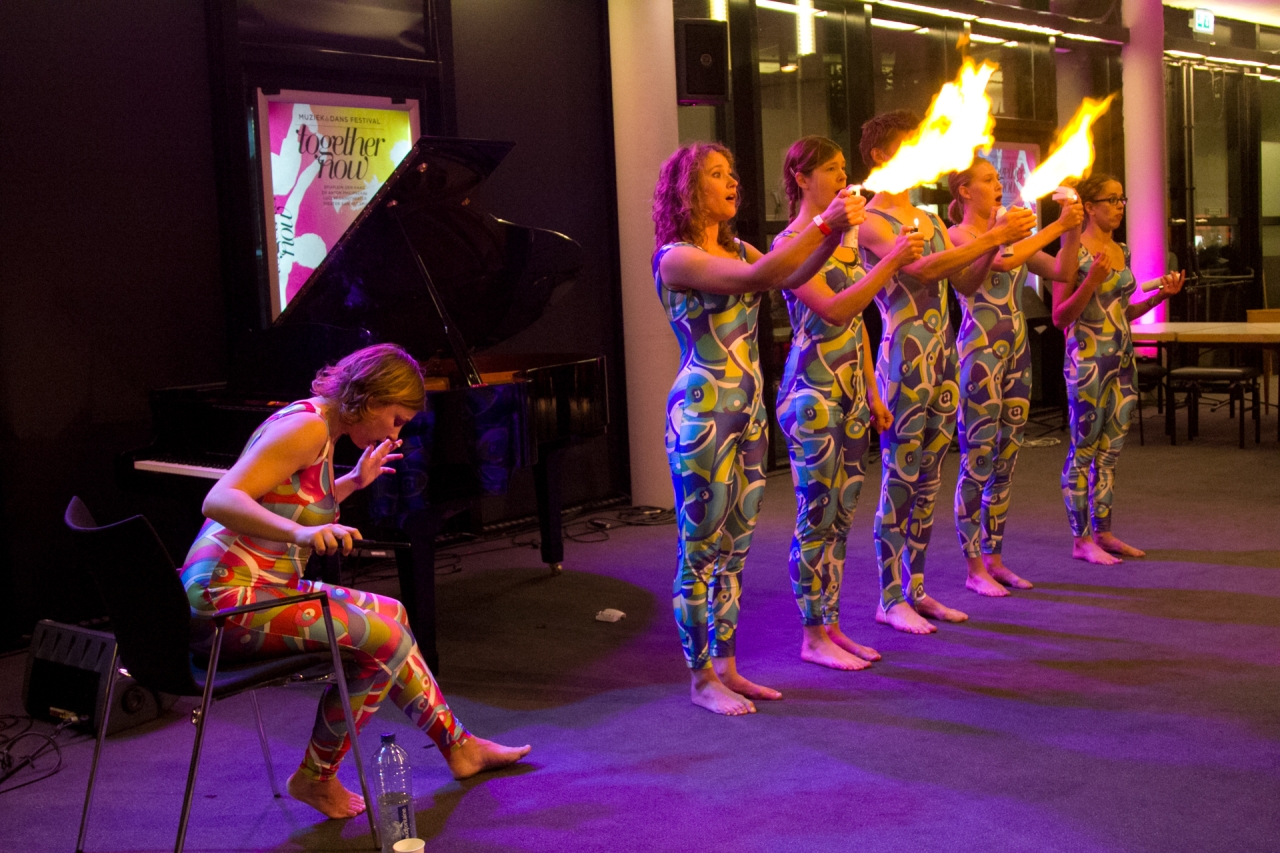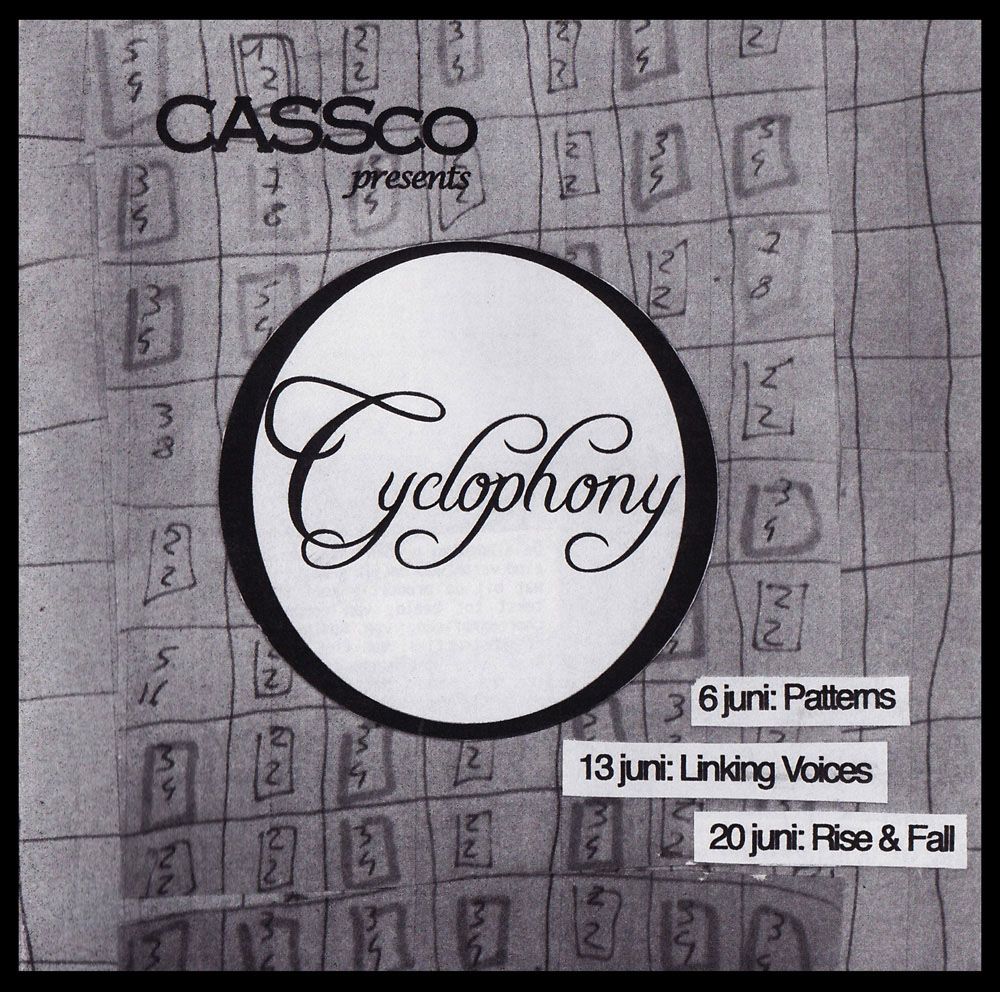T.I.M.E. (2012-2014)
Music Theater Laboratorium
T.I.M.E. is the ensemble of the Music Theater department of the Royal Conservatory of The Hague. A group of young performers from various art backgrounds who worked together for two years and created several Music Theater performances.
Oberioe 12|12|12 (2012) is a one-hour performance inspired by the life and the texts of the Russian absurdist writer Daniil Kharms and the ‘Oberiu’ evenings organized by the Russian avant-garde movement ‘Union of Real Art’.
In Cyclophonia (2013), two bicycles - or rather two sound installations - each carrying five people - approach each other extremely slowly. On each bike, there are organ pipes: small soprano pipes, but also big bass pipes, blown with four bicycle pumps. There is a set of amplified percussive bicycle parts, distorted Wagner voices, a choir, and Nietzsche texts. The organ plays Wagner and Feldman, slowly - slower than slow. The bicycles cross each other and move on in opposite directions. It's nothing and at the same time, it's everything.
Credits
Concept Cyclophonia Ensemble – Bicycle Installation Paul Beuk – Composition Thomas Bensdorp, Maya Verlaak – Sound Design Jillis Kruk, Glenn Ryszko – Costume Design Joske Koning – Organ Lucas Kramer – Voice Sterre Konijn – Percussion Claudia Hansen – Performance Thomas Bensdorp, Claudia Hansen, Sterre Konijn, Joske Koning, Lucas Kramer, Jillis Kruk, Jorinde Kuipers, Bas Maassen, Glenn Ryszko, Lisa Verbelen, Maya Verlaak – Production T.I.M.E.
Live
Reviews
Slowly, two scaffolds on wheels welded together with about ten granny bicycles, move towards each other through the passage of the Rijksmuseum. One drags a battery of organ pipes behind it, the other one is packed with percussion consisting of chains, handlebars, bike frames, and bicycle bells. Each of these constructions carries half a dozen students from the Royal Conservatory who sing, act, and make music. [...] So far, the weekly concerts in the passage are without a doubt the most successful performances of this year's Holland Festival. And they are even for free. [...] Based on what I have seen until now, it seems that a group of Music Theater students has understood more about contemporary Music Theater than the entire top program of the Holland Festival. The pretensions and the high production values make Francesconi, Van der Aa, Dillon, and Fabre each fall into their form of mannerism. Should we then just skip all the fringes and tassels? Isn't music theater the art form of the 21st century after all? No! We just shouldn't listen to Pierre Audi. There are certainly good, present-day reasons for giving music a theatrical interpretation. After all, music is just organized sound, and a cult of musical complexity, virtuosity, and ‘deep listening’ is not the way to keep the art form alive either. We have to explore the boundaries of disciplines to create fundamentally new musical experiences, and in a time when everything can be 'art', presentation is an essential part of every art form, including music. You just shouldn’t be interdisciplinary because you have to, but because it's fun. The new generation understands that and rides in a musical bicycle monster under the Rijksmuseum, instead of convulsively trying to be contemporary in a bubble.
(translated by Claudia Hansen)
